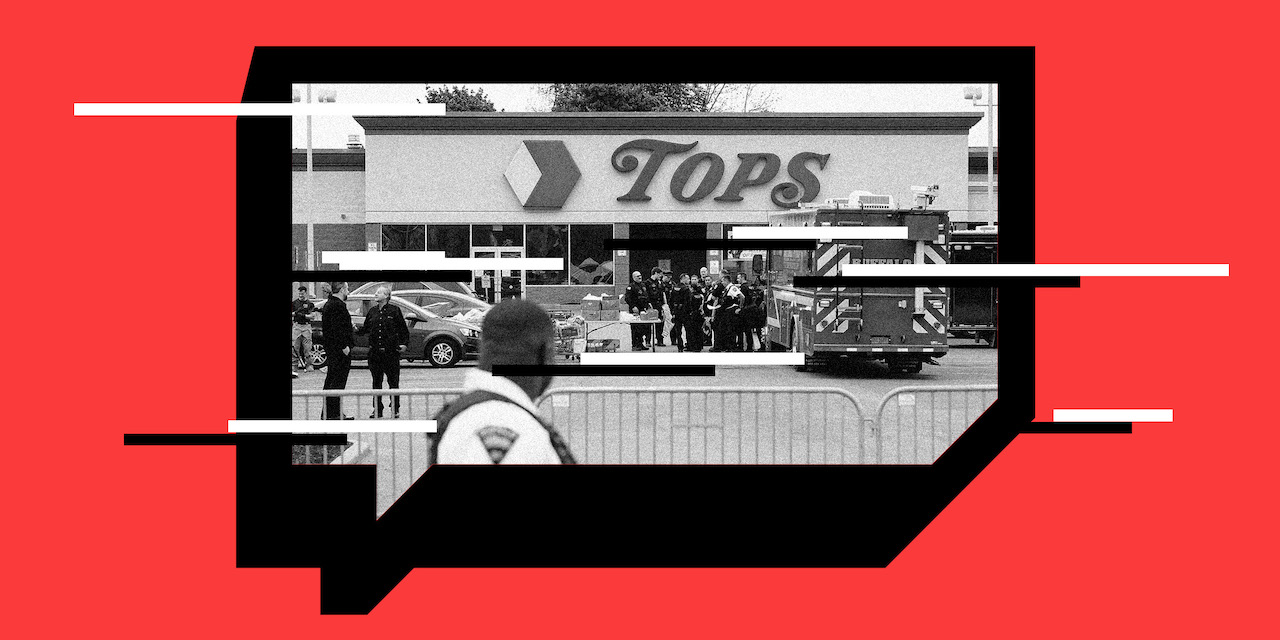What happened to moments of silence and candlelit vigils after massacres take place in communities like Buffalo? Because individual tragedies are now bundled to make political points: the murder was a hate crime, the shooter had a manifesto, and the GOP sowed racist ideology. All of that after an 18-year-old boy gunned down ten Americans?
That same day, a group of distinguished black intellectuals gathered in Dallas to ask what was holding back black America? Black author Ayaan Hirsi Ali said the answer had “little to do with the phantom of systemic racism.” After reading the Buffalo manifesto, she concluded “racism almost certainly explains the attack.” But, she added, “racial disparity in crime” can’t be solved by “monocausal explanations.”
Back to Buffalo and the the “ethno-nationalist eco-fascist national socialist” teen, whose cut-and-paste manifesto seems more mental health crisis than nascent political movement. Circling back to online incubators of identity hatred, it’s a confession of a child who’s been stuck in a room with a smart device (that’s anything but). Algorithms force-marched his curious eyes to on-line hate groups, who convinced him to fear the world. The lesson is clear: mothers, don’t let your sons grow up with an iPad as their best friend.
It’s a behavioral disorder for a US high-school graduate – with his entire life ahead of him – to trample on his fellow citizen’s right to life (that supersedes the right to chat rooms and gun purchases). I read his crackpot “manifesto” and saw a lost boy – not the next Karl Marx. I heard the “liberal” proclamations and felt pathos for Democrats, whom Ali describes as “almost always misguided and, as a consequence, almost always ending up harming the vulnerable.”
Misguided? Shelbey Steele, author of White Guilt, told the Dallas audience America remains the best country in the world to be black, despite the fact some racism still persists. Ms. Ali noted the “huge progress that blacks in America have made since desegregation in 1964…a black president, two black Supreme Court justices, black billionaires, academics, media personalities, actors and comedians.”
Misguided? Harvard economist Roland Fryer debunked the Democrat narrative that the police kill more black than white Americans. His research found “racial differences in the use of non-lethal force by police officers, with blacks largely at a disadvantage, but not in officer-involved shootings” (source: Unherd). For that, Ali points out Fryer – a black professor – was effectively cancelled by his university.
Misguided? President Biden denounced the mass attack as “a racist act of terror” to a mostly black audience in Buffalo, who were not too impressed. One of the disappointed was Tim Lewis: “It’s kind of a slap in the face. He should’ve just come out here and spoke a few words to give us hope” (source: Pittsburgh Post-Gazette).
The consequences? Ali believes fear of systemic racism begat defund-the-police policies and precincts “intimidated to the point that many stopped serving black neighborhoods.” The immediate aftermath were higher crime rates in black communities, with 1,000 more black lives lost to homicide in 2020 over 2019. In context, black Americans are now 12% of the population and 55% of the murder victims (source: USCB).
The consequences? By citing mass murder as politically motivated, Democrats might be making matters worse. One day after Buffalo, a gunman from Communist China opened fire on Taiwanese Presbyterians in California, leaving one dead and five wounded. A month earlier, a black “domestic terrorist” opened fire on a Brooklyn subway, leaving 29 injured. The Buffalo shooter wrote that he was inspired by earlier race-based mass murderers.
I think Morgan Freeman and Megyn Kelly might have the solution.
Years ago, Freeman responded to racial disparity: “Why would race have anything to do with it? It’s kind of like religion to me, it’s a good excuse for not getting there. Can we move on? It’s not like it exists and we refuse to talk about it. Making it a bigger issue than it needs to be is the problem here.”
On Monday, Kelly said people trying to politicize the shooting are contributing to division. “We will not be naming the shooter, who in part [is] out for infamy, and we decline to help. The media have been quick to point fingers and even place blame. Why do we have to go to that place immediately? Why can’t we spend two minutes mourning the people who are dead?”
